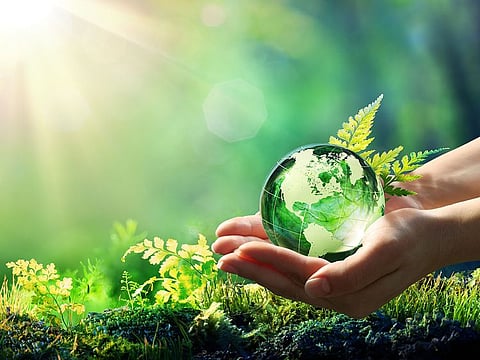World Environment Day: How smart and sustainable cities can transform our ecosystems
We must rethink urban living, fostering sustainable communities, and food security

Restoring land, combating desertification and managing the crippling aftermath of droughts to ensure the well-being of more than 3 billion people — these aren’t really items from the climate agenda of a distant future, but the topmost priorities for the United Nations Environment Programme (UNEP) this year as the international community celebrates World Environment Day on June 5.
The World Environment Day 2024 offers a window of opportunity and action at a time when nearly one-fifth of earth’s land is damaged, forests are disappearing, water bodies are shrinking, and farms are turning into dust bowls.
Aptly, the focus this year is on restoration: on replanting forests, rewetting marshes, reviving soils and rejuvenating a fragile ecosystem reeling from the destructive impact of rising emissions.
And what better place to reinvigorate the battle to combat the climate crisis than the GCC — a region that have been at the forefront of raising environmental awareness and restoring ecosystems?
Embracing sustainable development
Indeed, GCC states have emerged as true global leaders in the fight against climate change and embracing sustainable development.
As exemplified by COP28 hosted in Dubai last year — the biggest climate conference in the history of UN — the UAE has been a pioneer in the region’s commitment to environmental stewardship, leading with resilience and innovation to shape a sustainable future for a region highly vulnerable to climate change.
That’s why in the UAE and across the region, there’s an increasing focus on creating green buildings, smart cities, sustainable waste management systems, recycling initiatives, and eco-friendly transportation — all of which will go a long way in addressing the troika of land degradation, desertification and drought that’s on the agenda this World Environment Day.
Indeed, in a region boasting some of the world’s most dynamic economies, such as the UAE, cities of the future will play a pivotal role in the pursuit of a clean and emissions-free environment.
The World Environment Day hosted by the region is the perfect occasion to reflect why the cities of the future must be sustainable and smart, and help preserve our precious natural resources for future generations, through collaborative work between the private and public sectors.
Supporting a circular economy
Making cities smart and sustainable means rethinking and integrating every element of urban living — whether it’s about sharing knowledge and nurturing sustainable communities, supporting a circular economy, facilitating clean mobility, setting up the infrastructure for new energy, or ensuring the community’s food security.
As demonstrated by pioneering sustainable projects in the UAE, such as Sharjah Sustainable City, cities that offer an eco-friendly lifestyle and pave the way for a net-zero future are already here.
As a city aspiring to achieve Net Zero Energy, its aim is to foster an eco-friendly community with reduced carbon footprint and savings on energy consumption.
Globally, countries have pledged to restore one billion hectares of land — an area larger than China — by protecting 30% of land and sea for nature and restoring 30% of the planet’s degraded ecosystems.
According to the UN, the world needs to restore at least 1.5 billion hectares by 2030 if we are going to safeguard life on Earth. That’s why there’s no better time than this World Environment Day to turn those ambitions and commitments into a turning point for environmental action for a transformative future.
Yousif Ahmed Al-Mutawa is the Chief Executive Officer of Sharjah Sustainable City



